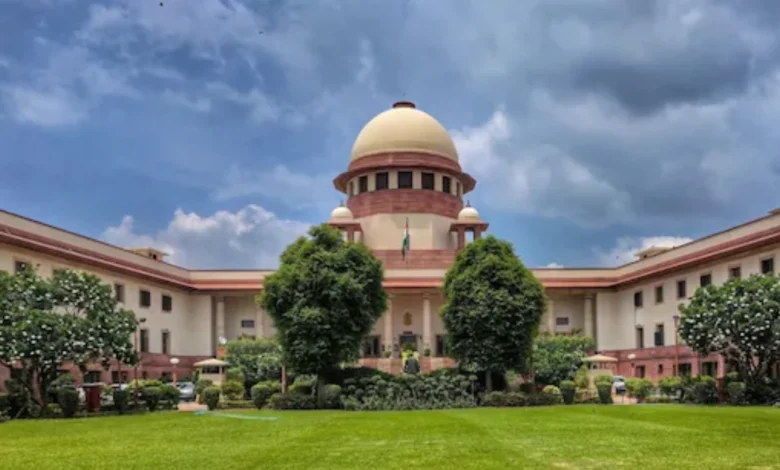Supreme Court: Specific Role of Director Not Mandatory in Cheque Bounce Complaints Under NI Act

In a recent and important decision, the Supreme Court of India has made it clear that a complaint under the Negotiable Instruments Act, especially for cheque dishonour cases under Section 138 read with Section 141, does not need to include a detailed description of each director’s role in the company.
This judgment brings relief to complainants, especially banks and businesses, by simplifying the process of filing cases against company directors when a cheque issued by a company is dishonoured.
Background of the Case
This case came up after HDFC Bank Ltd. filed a complaint against a company named M/s R Square Shri Sai Baba Abhikaran Pvt. Ltd. and its directors, including Mrs. Ranjana Sharma, over the bouncing of a cheque.
The Magistrate initially issued a process (legal summons) against all the accused. However, the Bombay High Court later cancelled the case against Mrs. Sharma, saying the complaint didn’t clearly mention what role she played in the company’s affairs.
This order was challenged by HDFC Bank in the Supreme Court through a Special Leave Petition.
Supreme Court’s Decision
A Bench of Justice Manoj Misra and Justice K.V. Viswanathan overturned the High Court’s decision. The Supreme Court held that:
- It is not necessary to describe in detail the specific role of a director in the complaint.
- What matters is whether the complaint generally mentions that the person was in charge of and responsible for the business of the company at the time the cheque was dishonoured.
Key Observation by the Court
“The law does not require that the exact words of the statute be copied like a mantra. What is important is that the complaint should show material compliance — it should broadly indicate the accused’s responsibility in the company.”
Why This Matters
Under Section 141 of the Negotiable Instruments Act, when a company is involved in a cheque bounce case, its officers (like directors) can also be held responsible. But the question has always been: What should the complaint say about them?
The Supreme Court clarified
- A person is not automatically liable just because they are a director.
- However, the complainant only needs to generally say that the person was in charge of and responsible for the company’s operations.
- The specific internal role of a director is considered to be within the special knowledge of the company or the director, and it can be clarified by them during the trial.
Reference to Past Cases
To support its decision, the Supreme Court looked at several earlier judgments, such as:
- S.M.S. Pharmaceuticals Ltd. v. Neeta Bhalla (2005)
- Said that being a director alone is not enough to hold someone liable.
- The complaint must say that the person was in charge of the company’s business.
- K.K. Ahuja v. V.K. Vora (2009)
- Confirmed that a general statement about someone being responsible is enough at the complaint stage.
- National Small Industries Corporation v. Harmeet Singh Paintal (2010)
- Stressed the need for clear allegations, but not overly detailed administrative descriptions.
- S.P. Mani & Mohan Dairy v. Snehalatha Elangovan (2022)
- Reaffirmed that the complainant doesn’t have to explain every internal company role.
Final Ruling
The Supreme Court stated that:
- A harmonious reading of all these judgments shows that the complainant does not need to explain facts that are in the special knowledge of the directors or the company.
- The Magistrate must see if the complaint has enough substance.
- Defences like lack of involvement or knowledge can be raised later during the trial.
By allowing the appeal, the Supreme Court restored the Magistrate’s order that had summoned Mrs. Sharma and cancelled the High Court’s decision that had let her off.
Conclusion
This Supreme Court ruling is important for companies, directors, and complainants involved in cheque dishonour cases. It makes it easier to bring directors under legal scrutiny without needing detailed internal company information at the complaint stage.
This judgment also reinforces the legal principle that responsibility comes with being in charge, and that directors must defend themselves in court if they claim they weren’t involved, rather than expecting complainants to know and explain every administrative detail.
